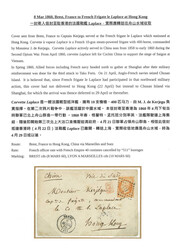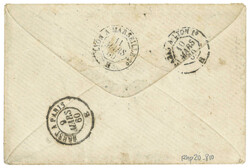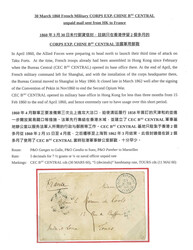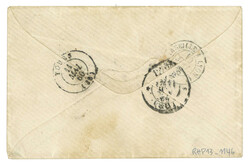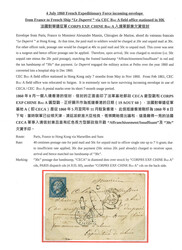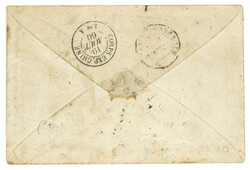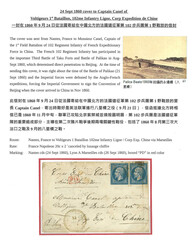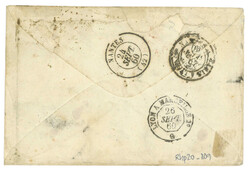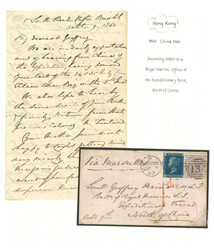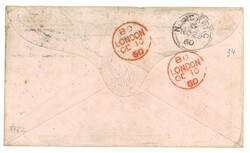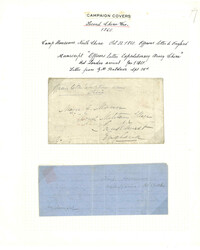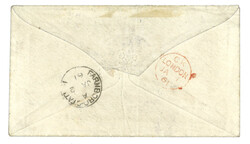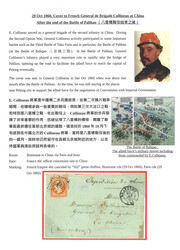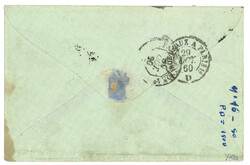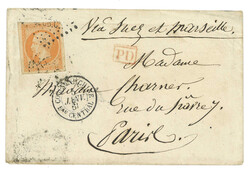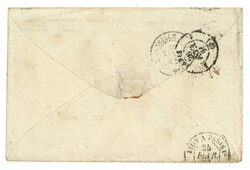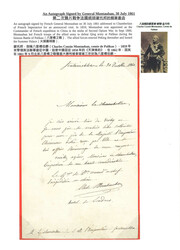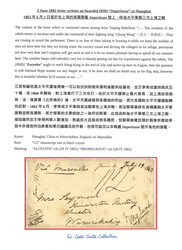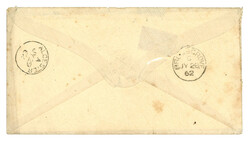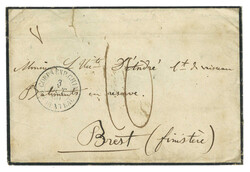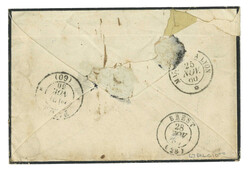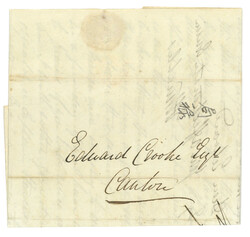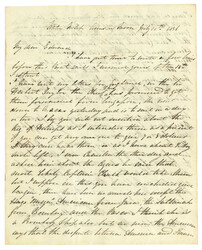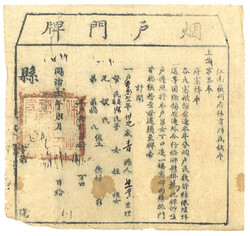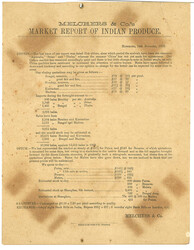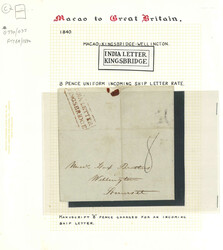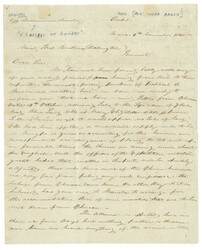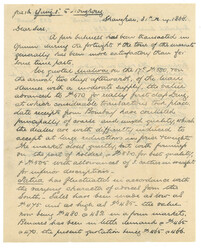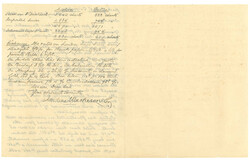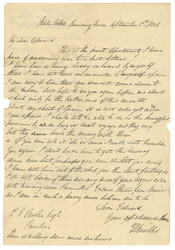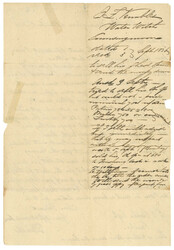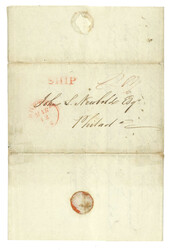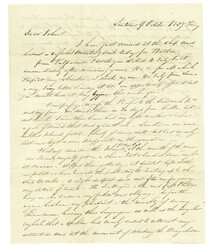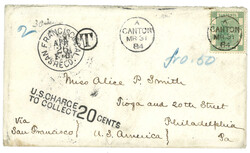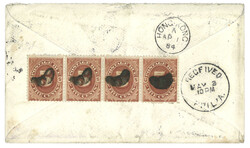1861 (5 Jan) Shanghai, on board the Empress Eugénie This letter,
dated 5 January 1861 aboard the French naval vessel HMS Empress
Eugénie
1861 (5 Jan) Shanghai, on board the Empress Eugénie This letter,
dated 5 January 1861 aboard the French naval vessel HMS Empress
Eugénie in Shanghai, provides a rare and candid naval perspective
on the final phase of the Second Opium War. The writer contrasts
the dramatic land campaigns of General Montauban and General Grant,
including the capture and infamous destruction of the
YuanMingYuan圓明園 (Old Summer Palace) and the atrocities committed
against Chinese prisoners, with the less sensational but
strategically vital role of the French Navy. He proudly highlights
the navy’s contribution to the landing operations, the assault on
Takou Forts大沽砲台, and the capture of Tientsin, where 600 French
marines matched the army in combat effectiveness. This letter
captures the internal rivalry between branches of service and
underscores the crucial yet often overlooked role of naval forces
in securing Allied victories along China’s northern coast in 1860 —
victories that directly led to the Convention of Peking and the
war’s conclusion. The French letter translated into the following:
“……my report pales in comparison with that of (General) Montauban,
our manner of seeing is as different as day from night. I tell you
that the feats of war of the army seem to have much greater effect
than those of the navy, but all is not finished; what admiration of
the onlookers feel when they read the accounts of the two battles
fought by General Montauban and General grant before going to
Pekin, then the capture, the pillage and the burning of the
Imperial Palace of Yuen-Ming-Yuen, the tortures and murders of
prisoners, we don’t have in the navy all these dramatic tableaus to
offer the public, we simply operated a landing on a winding coast
bristling with difficulties, we contributed powerfully to the
taking of the fort of Takoa大沽, we along took Tien-Tsin our 600
marines of the landing force rivalled with advantage the
soldiers……”
本信件寫於1861年1月5日,地點為法國海軍「Empress
Eugénie(女皇尤金妮號)」艦上,停泊於上海,提供極為罕見且坦率的法軍海軍對第二次鴉片戰爭末期的觀察與心聲。信件撰寫者坦言,儘管陸軍將領**孟托邦將軍(General
Montauban)與格蘭特將軍(General
Grant)在北京戰役與圓明園焚毀行動中獲得極高關注與戰功讚譽,但他仍自豪於海軍在大沽砲台(Taku
Forts)與天津(Tientsin)**作戰中的實質貢獻。
信中對比道:「……我的報告比起孟托邦將軍的顯得黯淡無光,我們對戰爭的理解就像白天與黑夜般不同。陸軍的戰績在公眾眼中似乎比海軍更具戲劇性——尤其是兩場進攻北京前的戰役、圓明園的掠奪與焚毀、甚至俘虜的酷刑與處決——海軍無法呈現這些戲劇畫面;我們只是完成了困難地形下的登陸作戰,協助攻陷了大沽砲台,我們600名海軍陸戰隊還單獨攻佔了天津,其表現絲毫不遜於陸軍……」
此信顯示法軍海軍對其角色定位的矛盾與驕傲,坦承其作戰貢獻在外交與媒體層面常被掩蓋,但其實際戰術成效卻至關重要。海軍在華北海岸的登陸、砲擊與後勤運輸,是確保聯軍自南向北推進並最終迫使清廷簽署**《北京條約》**(Convention
of Peking,
1860)的關鍵因素之一。此信既是一次跨軍種角度的戰爭檢視,亦為研究法國在華軍事行動、聯軍內部關係與戰後自我認知的重要原始資料,具有突出的史料與郵史價值。

